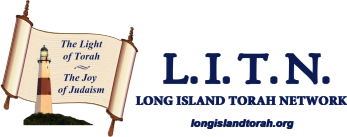Pekudei
Pekudei begins with an accounting of the precious metals – gold, silver and copper – used in construction of the Mishkan [Tabernacle]. The Torah records the quantity of each metal and what it was used for, highlighting the necessity for transparency. Even Moses cannot hold himself above suspicion, and must give an accounting of donated funds. The Torah’s charge to be “clean before G-d and Israel” means that it is not enough to be honest; our behavior must demonstrate honesty to all, leaving no room for doubt about our personal integrity.
The Parsha continues by recounting how the Jewish craftsmen fashioned the garments of the Kohanim [priests] and the Kohen Gadol [High Priest] according to the precise instructions relayed by Moses.
The Mishkan is finally complete. Its components are brought to Moses, who recognizes that everything has been done exactly as G-d commanded. A gratified Moses blesses the people.
G-d commands Moses to inaugurate the Mishkan in a seven-day ceremony, assembling and disassembling the Mishkan each day. On the first of Nissan – two weeks before the first anniversary of the Exodus –the Mishkan will be assembled permanently, to be dismantled only for the purpose of travel. The Mishkan is put up by Moses himself, who erects the walls, spreads the roof, and places all the furniture in position.
A cloud rests upon the completed Mishkan, symbolizing the Divine Presence. Even Moses may not enter while the cloud hovers over the Mishkan; only when the cloud is removed may Moses come to speak with G-d. The cloud also guides the Jews in their travels; when it rises into the air, it is a sign that they are to journey to a new place.
“For the cloud of G-d was on the Mishkan by day, and a fire was there by night, in view of all Israel, throughout their travels.”
This concludes Exodus, second of the Chumash (Five Books of Moses)
Click below to open a printable pdf
The Parsha continues by recounting how the Jewish craftsmen fashioned the garments of the Kohanim [priests] and the Kohen Gadol [High Priest] according to the precise instructions relayed by Moses.
The Mishkan is finally complete. Its components are brought to Moses, who recognizes that everything has been done exactly as G-d commanded. A gratified Moses blesses the people.
G-d commands Moses to inaugurate the Mishkan in a seven-day ceremony, assembling and disassembling the Mishkan each day. On the first of Nissan – two weeks before the first anniversary of the Exodus –the Mishkan will be assembled permanently, to be dismantled only for the purpose of travel. The Mishkan is put up by Moses himself, who erects the walls, spreads the roof, and places all the furniture in position.
A cloud rests upon the completed Mishkan, symbolizing the Divine Presence. Even Moses may not enter while the cloud hovers over the Mishkan; only when the cloud is removed may Moses come to speak with G-d. The cloud also guides the Jews in their travels; when it rises into the air, it is a sign that they are to journey to a new place.
“For the cloud of G-d was on the Mishkan by day, and a fire was there by night, in view of all Israel, throughout their travels.”
This concludes Exodus, second of the Chumash (Five Books of Moses)
Click below to open a printable pdf
| pekudei_snapshot_and_closer_look_template_final.pdf | |
| File Size: | 941 kb |
| File Type: | |

